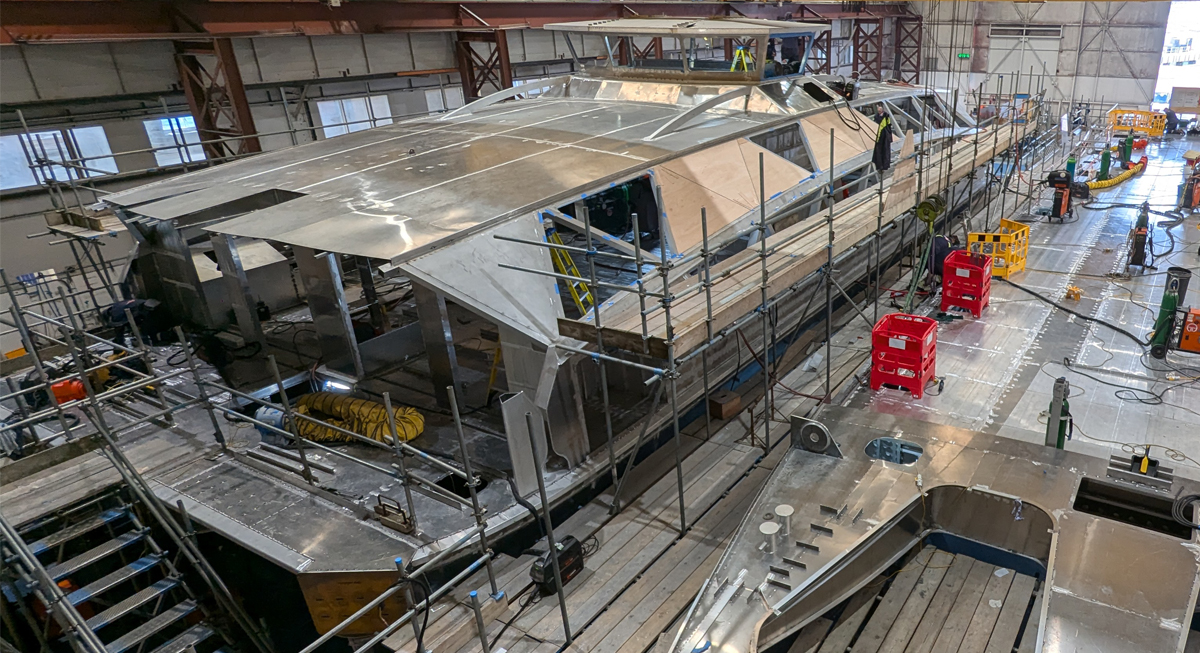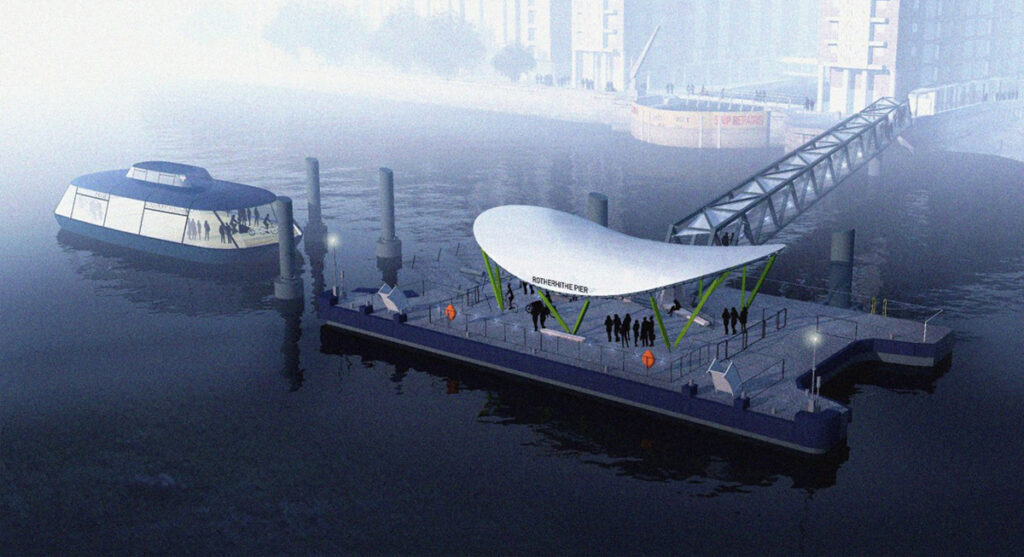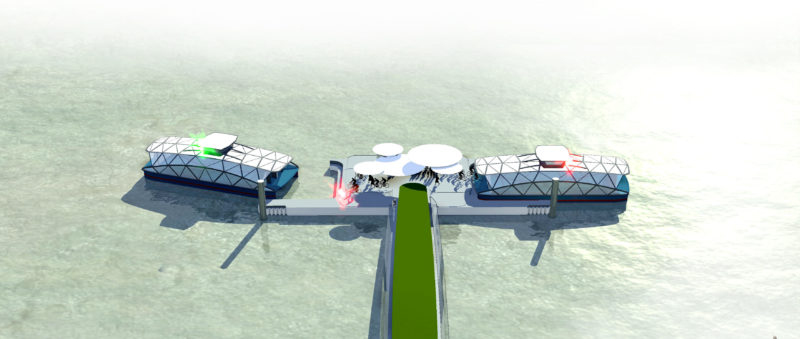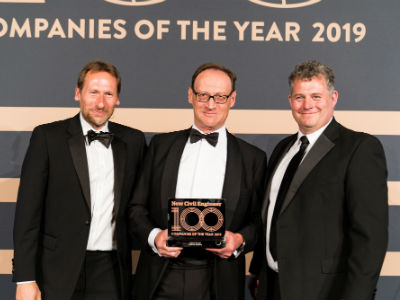The UK’s first fully electric, zero-emission cross-river passenger ferry will launch on the Thames in early 2025, providing regular, fast and safe journeys for 23,700 passengers every weekday.
On Thursday 5th December 2024, Uber Boat by Thames Clippers publicly revealed the Orbit Clipper for the first time, a double-ended self-docking and auto-mooring electric ferry destined to replace the diesel service running between Rotherhithe and Canary Wharf.
Currently under construction at Wight Shipyard Co in East Cowes, Isle of Wight, the vessel marks a ground-breaking step in the Cross River Zero Emission Ferry project.
Five years ago, Beckett Rankine joined forces with Thames Clipper to propose improvements to the existing crossing, offering passengers and cyclists a more sustainable transport option than road routes.
The project pairs Orbit Clipper with an inclusive pier design at Rotherhithe and an extension at Canary Wharf to ensure a seamless semi-automated mooring experience with minimal energy usage.
Beckett Rankine is the Principal Designer under CDM, responsible for the design and consenting of the piers.
Working in collaboration with Anthony Carlile Architects, the Rotherhithe pier is designed for the accessibility of cyclists and people with restricted mobility. Additionally, Eadon Consulting and Aqua superPower have provided design support for the innovative semi-autonomous mooring and shoreside power.
“It’s five years since Beckett Rankine and Uber Boats by Thames Clipper came up with the concept for a zero-emission roll-on/roll-off ferry at Rotherhithe, as an alternative to the then-proposed bridge. I am delighted that this vision is now being realised, with the aid of Wight Shipyard building the vessel and Aqua superPower providing the shore power connections.
Tim Beckett, Director
“Beckett Rankine is proud to have been responsible for the design and consenting of these pier works, on which construction is due to commence in January. As London extends eastward, there is an increasing need for cross-river pedestrian and cycle links across the Thames, so the Orbit Clipper couldn’t be launched at a better time.”
The Rotherhithe to Canary Wharf zero emission ferry project is part of the Clean Maritime Demonstration Competition Round 3 (CMDC3), which was announced in September 2022, part funded by the Department for Transport and delivered in partnership with Innovate UK.
The Rotherhithe-Canary Wharf crossing is a prototype for further services in London and beyond, no doubt catalysing the advancement of sustainable river transport and maritime technology.





